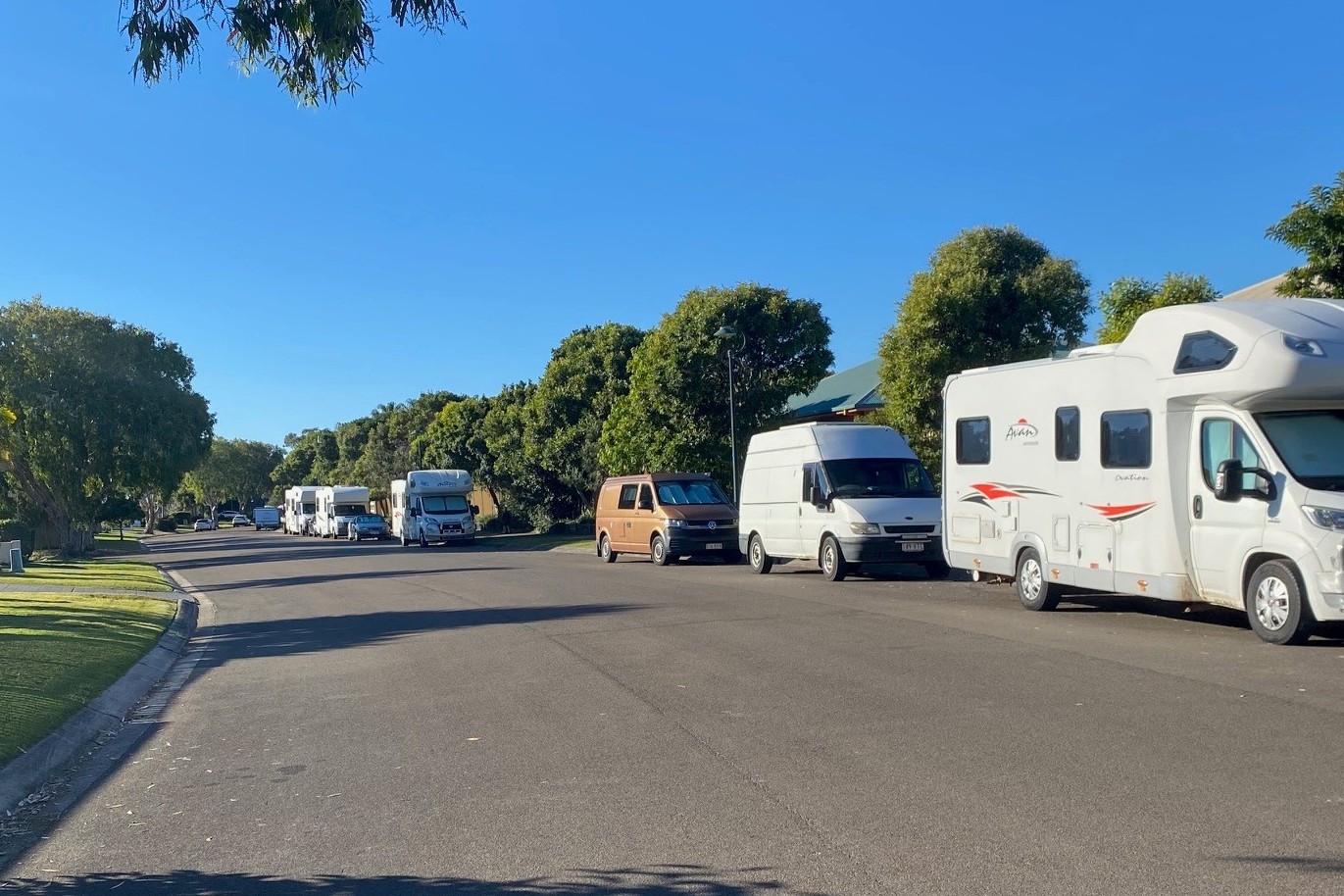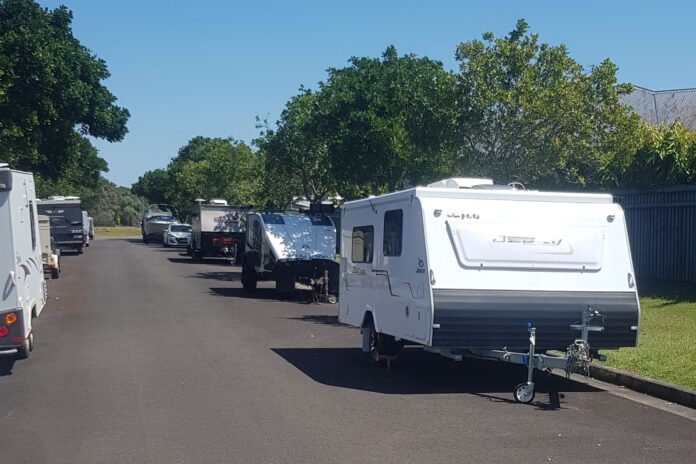Sunshine Coast Council data has revealed the extent of caravans and trailers parked on suburban streets, with locals reporting hundreds of incidents each year.
Residents have recently expressed their frustration at large recreational vehicles clogging local roads, including a petition signed by about 1150 people and a man aggrieved at parked vans either side of his driveway.
Statistics now show just how widespread the issue is, with the local council disclosing that it receives about 700 ‘service requests’ on the issue each year.
“Community members tend to raise concerns relating to the safety of parking, the amenity of the area and long-term storage of these vehicles,” a council spokesperson said.
“In most cases, council officers find that vehicles are parked lawfully or can park lawfully with minor adjustments.”
Want more free local news? Follow Sunshine Coast News on Facebook, LinkedIn and Instagram, and sign up for our FREE daily news email.
There are rules for long-term parking of caravans and trailers.
Vehicles longer than 7.5m or weighing more than 4.5 tonnes must not park in built-up areas for more than an hour unless loading or unloading, while parking on nature strips, footpaths and verges is prohibited. Vehicles must be parked in a way that leaves at least 3m of clear roadway.
But it appears that’s not enough.
The local petition has urged council to review and amend the local laws, establish clear time limits, strengthen enforcement and prohibit unsafe parking to make a greater difference.

The council said its hands were tied to an extent.
“While Sunshine Coast Council has explored intervention options, the Transport Operations (Road Use Management) Act 1995 does not provide practical options for local governments to address this issue without affecting all vehicles parked in the local government area,” it stated.
According to the Queensland road rules, registered vehicles such as caravans, trailers and boats are permitted to remain safely parked on the road indefinitely, except where parking restrictions apply.
Related stories
- Residents vent over parked vehicles
- Councillor pushes simple plan to decongest streets
- Residents driven mad as ‘toys’ clog up suburbs
But the council stated that it was attempting to address the issue.
The council has supported a motion to be presented at the LGAQ Conference at the Gold Coast on October 20-22 that “seeks to address the matter that is increasingly causing concern across the community in relation to the storage of recreational vehicles on roads”.
The motion calls on the state government to investigate and develop options for managing the storage of recreational vehicles on roads “which can have negative impacts in relation to safety, parking capacity and amenity”.
The council spokesperson said vehicle owners needed to take responsibility “for making arrangements for parking their vehicles lawfully and safely”.
“If vehicle owners are not able to park their vehicle on the street, they could consider solution on their private property or a storage facility,” they said.
But there are many smaller block sizes and limited storage facilities in the region.
Sunshine Coast News reached out to Stockland, the creator of Australia’s largest master-planned community Aura on the southern Sunshine Coast, with questions regarding space for vehicles but the developer said it “won’t be able to provide commentary”.
Developer AVID, which is behind the growing Harmony community, did respond.

“Our residential designs comply with the Sunshine Coast Planning Scheme policy and follow best-practice principles in urban design,” general manager Queensland Anthony Demiris said.
“As part of this, all homes within the Harmony project include off-street parking. Additional on-street parking and dedicated parking bays are also available throughout the community to support residents and visitors.”
SCN asked council whether developers were doing enough to minimise caravans and boats crowding the streets but did not receive a direct response.
A Department of Transport and Main Roads spokesperson said the local council was authorised to regulate caravan and trailer parking “tailored for local issues based on community needs” and that there was a range of ways to do this.
“The most effective option is through the installation of signage as this provides clear guidance at impacted locations and doesn’t rely on a prior understanding of rules,” they said.
“Parking signs can be location specific or across a broad area and can specify the types of vehicles that can or cannot be parked and for how long.
“Local governments also have powers to remove vehicles from roads that have been abandoned or parked unsafely.
“TMR is happy to work with local governments to support local solutions.”
SCN reached out to local storage facilities including National Storage, which states that it has caravan storage available at six locations in the region, and Caravan Storage Sunshine Coast, based at Landsborough, but did not receive replies.





